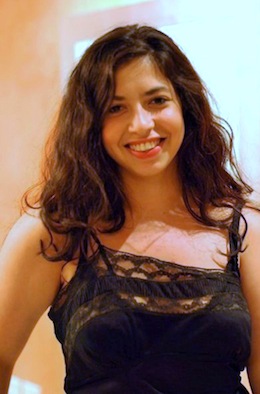Passover is a traditional time for families to sit down together and celebrate a holiday of freedom and deliverance. It’s a time to catch up and share meaningful moments. For one family torn apart by the Second World War, this Passover held a special significance as they caught up on nearly 70 years of history.
For 65 years, Holocaust survivor Rabbi Gershon Chanowitz said Kaddish for his sister, Asna Mera, who he believed had been murdered by the Nazis in 1942. And, for more than half a century, Asna Mera thought that all of her siblings had perished in the Holocaust, leaving her a lone survivor. But thanks to an incredible turn of events, the children of these survivors have learned of each other’s existence and have been reunited. With a shot-in-the-dark Google search and an implausible email, the long-lost Chanowitz cousins began unearthing a mystery spanning six decades and three continents.
A mysterious email
“About a week ago, my son, Moishe, the Chabad emissary [to St. Maarten], received an email through his Chabad website from someone in Israel searching for any news of his relatives,” said Rabbi Ben Zion Chanowitz, a Chabad emissary in Monticello, N.Y., and the son of Gershon Chanowitz – who passed away this past summer at the age of 91.
An excerpt from the email (grammatically edited) read:
“Shalom. I don’t speak English well…. I am from Vitebsk, Belarus. My name is Sashe Bumginz. My mother’s surname was Chanowitz from the shtetl of Glubokoe in the Vitebsk region. In the war, all of my family perished. I am interested in all information on Chanowitz from Glubokoe.”
“I was skeptical at first,” admitted Chanowitz. “We know all of our relatives, after all.” But then a follow up email “shook everything I knew.” Bumginz sent another email detailing his family history with names, places and dates that matched up exactly with Chanowitz’s. He explained how his mother, who passed away in 2007, survived the war and raised a family. As far as he knew, no other close family survived, but he was always searching for any information he could find on his family history.
Suddenly, the largely American-based Chanowitz family was electrified. Could their father’s sister have survived the war? Could they have cousins they hadn’t known existed?
Bumginz grew up in Soviet Russia and eventually moved to Israel in the early ’90s, where he is currently living in Herzilyah with his wife and two children. When he first arrived in Israel he contacted the Holocaust centre and museum Yad Vashem, as well as other resources over the years, attempting to seek out any information they might have on his mother’s family, but every search reached a dead end.
In March 2014, on Purim, Bumginz was invited by a Chabad co-worker to a farbrengen, a Chassidic gathering to celebrate the holiday. At the farbrengen, Bumginz opened up about his history and mentioned that his family, Chanowitz, has been Chabad for generations. He asked around if anyone knew the name, and one participant mentioned that there were Chabad emissaries with that name and suggested that Bumginz use Google to find them. A short search led to the Chanowitz family of St. Maarten, and the email above was received and then forwarded to Ben Zion Chanowitz.
An email exchange ensued.
“Many of us are excited and emotional about this special family news,” said Rebbetzin Simie Schtrocks, Gershon’s daughter. Schtrocks resides in South Surrey, serving as co-director of the Centre for Judaism, Chabad’s branch serving the Lower Fraser Valley.
“It is mind blowing that after 65 years plus we should now find out that Asna Mera actually did survive, had two children and lived in Vitebsk of all places. How tragic it is that she was unaware that the Lubavitch world had continued to flourish and that she had brothers 6,000 miles away who would have been thrilled to help her.”
As the family digests this news, they are slowly discovering stories explaining the years of misinformation, and uncovering many painful details along the way.
Gershon’s story
In the early 1920s, Gershon Chanowitz was born in the town of Glubokoe, in what was then Poland, a border city that has belonged to Lithuania, Poland, Russia and Belarus in the previous 100 years. He was one of 10 children in a dynastic Chabad Chassidic family. His father, Ben Zion, was a shochet (ritual slaughterer), a follower of the previous Lubavitcher rebbe, and an important figure in the small town of 5,000 Jews.
Gershon was sent at a young age to learn in a yeshivah in Otwock, Poland, and he was there in 1941 after the war broke out. At the advice of the previous Lubavitcher rebbe, he escaped north to Warsaw and then Vilna. He found out about Chiune Sugihara, the Japanese ambassador to Kovno, who was signing visas that saved some 2,000 Jewish lives. He obtained visas for three of his siblings, and snuck back to Glubokoe to beg his father to allow him to add his youngest brother, Yisroel, to a forged family passport, allowing him to leave as well. Ben Zion, his wife and the other children stayed behind. Gershon procured visa #1785 for himself, #1836 for his oldest sister Fruma, #1841 for his brother Shmuel Avraham and #2027 for young Yisroel. It was just in time too – the last issued visa was #2039.
The four siblings traveled to Kobe, Japan, and then Shanghai, China, where they resided until they could obtain visas to the United States. During that time, Shmuel Avraham died of an illness in Shanghai. When the war was over, they corresponded with different services seeking any information about their remaining family and discovered that their parents and siblings had been killed. A fifth brother, Chaim, escaped the war, and moved to the newly founded state of Israel and then to America. Eventually, the other three siblings made it to the United States and started rebuilding their lives, establishing the large families that exist today.
When the surviving siblings in the West sought out information on exactly what had happened to their family, they learned that, one day, when the Nazis arrived in town seeking to fill a “death quota,” they went about town killing people. The remaining Chanowitz family barricaded themselves in their house. At one point, they heard desperate banging on the door and 16-year-old Asna Mera, anguished at the thought that it might be a Jew seeking refuge, and despite her family’s protest, answered the door. The German soldier standing there grabbed her and took her away to be killed. The rest of the family was killed a year later in another mass murder.
Gershon and his surviving siblings, Chaim, Yisroel and Fruma, marked their parents’ and siblings’ passing every year, and said Kaddish for them throughout their lives.
Asna Mera’s story
The day that Asna Mera opened the door to the Nazi, she was taken to a soccer field with about 800-900 other Jews. They were then boarded onto trucks to be taken to be executed. On the way, a German commander picked her, and 14 other young beautiful girls, to be taken to a German army base to be among the soldiers. At one point, Asna Mera was with a soldier who had a large knife on his belt. She grabbed the knife and stabbed him to death, running away into the woods.
In the woods, she eventually met up with her 12-year-old brother, Tzvi Hersh, who had also escaped. The two siblings were freezing in the brutal winter and starving. They remembered that their well-respected father had a non-Jewish farmer friend in a nearby town to whom he once gave a large down coat and an expensive ring. They decided to go ask the farmer, who their father had always trusted, for the coat so they could survive. Scared to go together, Tzvi Hersh went first and knocked on the door. The farmer opened the door and grabbed the young boy, tied him up and gave him to the police in exchange for a 10-kilogram bag of flour. Tzvi Hersh was hanged that day.
Asna Mera miraculously survived the war, thinking she was a lone survivor. In her attempts to find her siblings, she traced them to Vilna but then their trails disappeared. She never found out what happened to them. At age 39, she married and moved to Vitebsk, which at that point was a part of Soviet Russia. She had two sons, one Simeon/Ben Zion, named after her father, and another, Sashe/Sholom Ber. Despite communism’s harsh shadow, she raised them as religious Jews.
After the fall of the Iron Curtain, Sashe moved to Israel. Asna Mera once visited in the early 2000s, and went to Yad Vashem herself, where she again tried to seek out more information to no avail.
After the war, Asna Mera discovered the heartbreaking news that the day after she killed the German soldier, the Nazis returned to Glubokoe and killed 150 people in retaliation. She suffered under the shadow of this horrific event all her life.
“She had very little happiness in life,” said Sashe. “She went through so much during the war.” And, when her oldest son Ben Zion was brutally killed while serving in the Russian army (he was thrown off a train by his comrades), she was devastated anew. “She was always quiet and withdrawn and broken.”
“We all wish she at least had happiness,” said Schtroks upon learning the news. “And she still did from her surviving son, passing down the family tradition and maintaining a legacy. We are just sad that although my father and his siblings tried so hard to find missing relatives, they did not find her in time to help her and ameliorate her situation.”
A family reunited
Despite the painful history that they learned along the way, the Chanowitz and Bumginz family are overjoyed at the discovery of one another, and eagerly looked forward to an emotional meeting in person after the Passover holiday. Benson, the son of Yisroel Chanowitz, was the first one of the family to meet Sashe during the intermediate days of Passover last week.
Rabbi Ben Zion Chanowitz recalled a story of his father during his yeshivah years in Poland right before the war, when he had the unique opportunity to observe the Passover seder of the previous Lubavitcher rebbe.
“A Chassid at the table asked the rebbe how we can be celebrating the holiday of freedom while we are still in exile – suffering under the threat of communist Russia and Nazi Germany. The rebbe sagely replied that ‘The redemption in Egypt showed us that you can leave, even if you are in the deepest exile.’”
This year, as Jewish families all over the world gathered to retell the miracles of old, they had a biblical obligation to feel “like they themselves left Egypt.” As they relived their family history, both the darkest moments and the miraculous survival, the Chanowitz and Bumginz families celebrated the miracle of redemption like never before.
– This article was originally published on lubavitch.com and is reprinted with permission.


